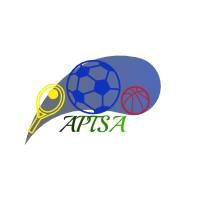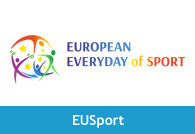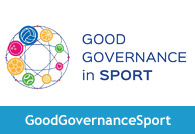NEWS

BSDA is partner in APTSA project

05.12.2017
“A Path to TranSportAction” (APTSA) is a project involving a total of 5 organizations from Europe (Croatia, Italy, Bulgaria) and Latin America (Brazil and Peru), whose main aim is to enhance the capacity of youth organizations and stakeholders in all partner countries and beyond to use Sport in combination with high-end Non Formal Education methodologies for fostering a gender-inclusive approach to Sport practices, contrasting sexism and gender stereotypes and promoting equality and mutual respect among genders in disadvantaged rural areas in Europe and in Latin America.
APTSA Consortium is composed of youth organizations committed to gender equality and experienced in the educational use of Sport, out of a shared consideration regarding the challenge posed by persisting gender gaps and stereotypes in all partner countries. Gender discrimination and inequality is a well known structural phenomenal of endemic proportions in Europe and Latin America, where concrete gender equality is impeded by persisting barriers and discrimination against young women. Barriers are both material (i.e. disadvantages in the labour market, lower wages than male peers etc.) as well as related to the social sphere wherein the a still considerable machist mentality determines more or less socially sanctioned forms of stereotyping and prejudice confining young women to established roles and conduits, particularly in secluded and underdeveloped rural areas. The most extreme manifestations of such mentality lay at the root of widespread phenomena of verbal/psychological and, ultimately, physical violence against women. The patriarchal character distinguishing family relations and social structures in rural areas, combined with a widely diffused conservative mindset, is a driver of social sanction to discrimination and abuse at risk of perpetuating themselves through being transmitted to younger generations. The emotional and psychological impact of consolidate and socially sanctioned discrimination feeds a pattern of insecurity and apathy leading young women to abstain from the socioeconomic engagement and participation which would make the difference in achieving their personal fulfilment and determining a positive evolution in their communities. Low female participation in Sport is an important component of gender-based disadvantage. General prejudice considering Sport as an almost exclusive field of male engagement, coupled by machist self-representations which permeate most Sport sub-culture, is at the same time a telling effect and self-perpetuating mechanism of gender discrimination. Sport is a powerful educational vehicle for disadvantaged targets to acquire crucial soft skills, transversal skills and positive attitudes of self-confidence and active participation, key components of any grassroots process of empowerment. Through its inner dynamics of peer-interaction and fair competition among people with diverse backgrounds, Sport provides also an invaluable experiential path to promote mutual respect and deconstruct prejudices.
APTSA outputs:
A Path to TransportAction
1- Kick-off Meeting Where: Rijeka (Croatia) Participants: 10 youth workers (2 per partner country) When: To be arranged.
2- Training Course Where: Rijeka Participants: 20 youth workers and leaders aged 18-25 (4 per partner country) When: To be arranged
3- Youth Exchange Where: Sassari (Italy) Participants: 30 (6 youngsters from disadvantaged rural areas per partner country) When: to be arranged
4- Phase of local activities through Sport methods Where: All partner countries Participants; 60 local youngsters from disadvantaged rural areas per each partner country When: To be arranged.
5- Creation of Web Platform When: To be arranged
6- Final Evaluation Meeting Where: Porto Alegre (Brazil) Participants: 10 youth workers (2 per partner country) When: To be arranged
Co-funded by Erasmus Plus Programme of the European Commission.
APTSA outputs:
- Format TC providing youth operators with knowledge, skills and NFE tools to involve local youth targets (males and females) in educational activities based on Sport and NFE to convey awareness and competences fostering female participation in Sport, rejection of gender stereotypes and respect of gender differences and sensibilities.
- A YE testing the methodologies employed in project TC with a representation of final youth targets from each partner country.
- A Local Activities Phase in all partner counties involving local youngsters from disadvantaged rural areas (30 males and 30 females) per each partner country.
- A Web Platform storing the materials produced in the project as e-learning modules.
A Path to TransportAction
1- Kick-off Meeting Where: Rijeka (Croatia) Participants: 10 youth workers (2 per partner country) When: To be arranged.
2- Training Course Where: Rijeka Participants: 20 youth workers and leaders aged 18-25 (4 per partner country) When: To be arranged
3- Youth Exchange Where: Sassari (Italy) Participants: 30 (6 youngsters from disadvantaged rural areas per partner country) When: to be arranged
4- Phase of local activities through Sport methods Where: All partner countries Participants; 60 local youngsters from disadvantaged rural areas per each partner country When: To be arranged.
5- Creation of Web Platform When: To be arranged
6- Final Evaluation Meeting Where: Porto Alegre (Brazil) Participants: 10 youth workers (2 per partner country) When: To be arranged
Co-funded by Erasmus Plus Programme of the European Commission.

 Български
Български






























